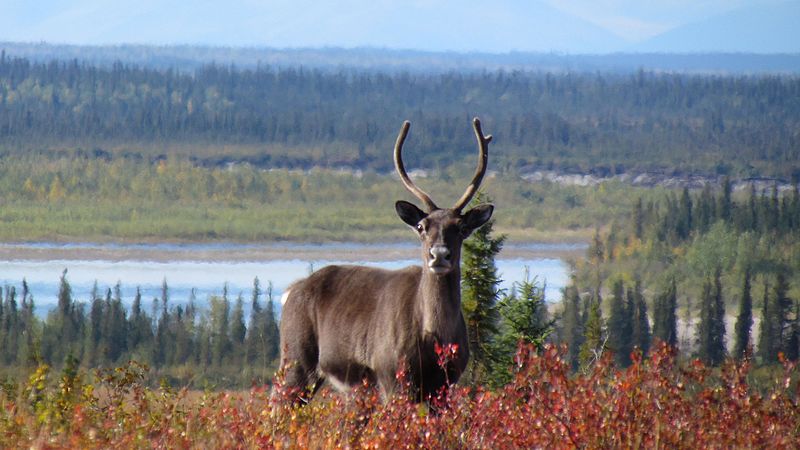
Three years ago, there were over 27,000 caribou in the Mulchatna Caribou Herd. Now there are less than half of that, only 13,500, according to Alaska Department of Fish and Game surveys. There are suspects for the decline but no identified causes.
Perhaps the animals trampled their food, but the herd was not at the peak numbers it once had decades ago. Perhaps there was heavy predation, like from wolves. But, predators don’t usually cause a population to drop by half. Then there’s a theory of over-hunting, which could be a contributing factor.
“If caribou are changing their behavior and coming into greater contact with villages than they have in the past, there’s the potential that more people are harvesting more animals than we might realize,” said Lauren Watine, lead wildlife biologist on the Mulchatna herd for the Alaska Department of Fish and Game.
And the herd has changed its behavior. It’s roaming more in the western part of its range near the Kuskokwim River and Bristol Bay region, an area with more and bigger communities than in the herd’s eastern range. With more communities come more hunters.
Caribou harvests often go unreported. There isn’t as much oversight on the animals as on other large game, like moose or muskox. Also, because caribou cluster densely together, it’s easy to accidentally wound or kill more animals than hunters might intend.
Just 238 caribou were reported harvested last year, but Alaska Department of Fish and Game surveys of households throughout the Mulchatna herd’s range indicate that more people are using caribou than harvest reports suggest.
The herd’s decline came as a surprise to wildlife biologists, but indications of the population drop started the year before. Veteran biologists surveying the herd in 2018 were seeing fewer caribou than usual.
“Anecdotally, they were seeing less animals in the group than in previous years,” Watine said.
Now, with the herd at an estimated 13,500 caribou, state and federal managers have imposed restrictions to conserve the population. The state reduced its bag limit to one caribou. Federal managers did the same for Mulchatna caribou taken on federal lands. In the Western Game Units, regulations are even tighter. In Units 18, 19A, and 19B, that single caribou must be a bull, and hunters must be federally qualified, local subsistence users.
Some of those users want the hunt shut down, fearing that this hunting season could wipe out the herd, but Watine doesn’t see that happening.
“If people follow the rules of this hunt, they won’t wipe out the Mulchatna,” she said.
As of Nov. 15, 79 caribou had been reported harvested. State and federal managers are considering what criteria could close the hunt early. To help them make these decisions, they’re encouraging hunters to report their harvests as quickly as possible.
